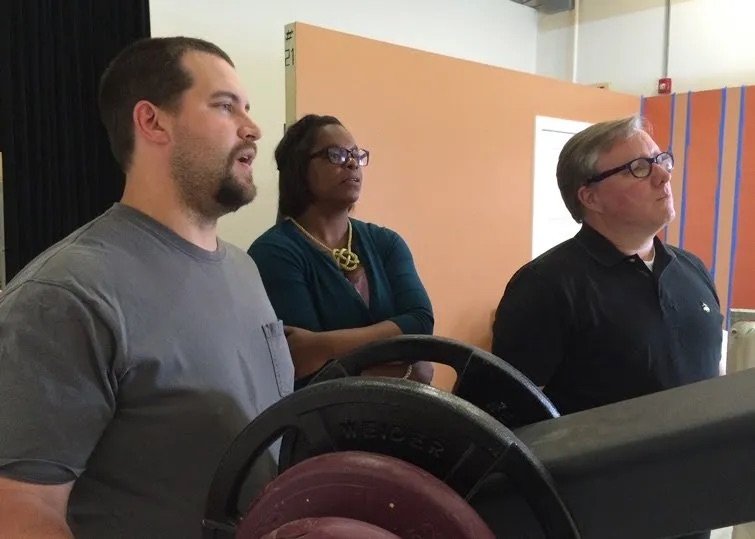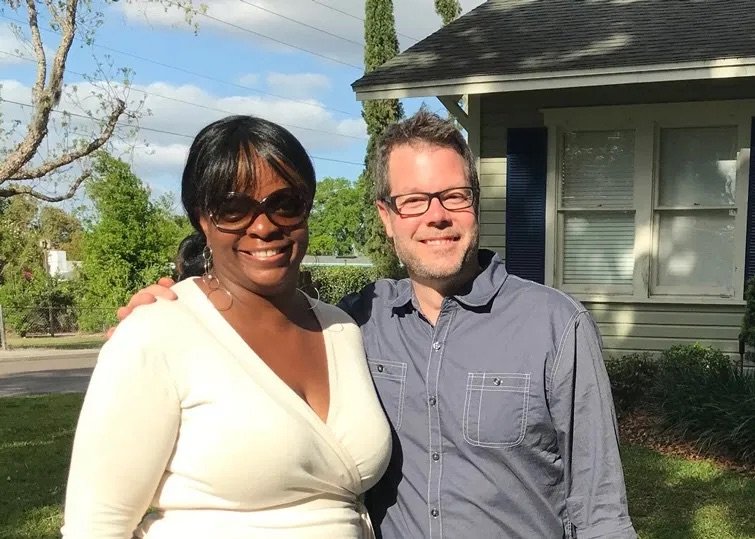A Black Woman and a White Man Walk onto Set
A film set is a microcosm of the world, in all its beauty and harshness. What I’ve learned the hard way about white males in production—the allies and co-conspirators.
I Always See Color
I am a Black woman (sigh . . . my heart fills with pride when I type that), award-winning executive producer, writer, director, creator. My résumé spans over twenty years in production, and I’ve done well as a leader. Today, when I walk on set, I’m the one in charge. But, I could’ve done better, faster.
Once called by my father “the fly in the milk,” I found myself flapping through high school, college, production offices, sets, restaurants, flights, and even whole towns. It doesn’t ever feel truly safe for me when I am the only black person in a group of white strangers.
My relationships with some white men in production have been complicated. Straight up! I’ve witnessed privilege play out to their benefit and suffered from biased decisions that disrupted my ability to make more money and expand professionally as a producer. You don’t mess with my money or my trajectory. Especially when I’m damn good at my job.
We all know the facts but here they are again, a hard slap in the face: “Among women who hold full-time, year-round jobs in the United States, Black women are typically paid 63 cents, Native American women 60 cents, and Latinas just 55 cents for every dollar paid to white, non-Hispanic men,” according to a September 2020 report from the National Partnership for Women and Families.
I could choose to stew in a simmering mess of resentment and anger but I’d never thrive there. I know myself well, and I know I do well in partnership, in co-creation. Some of my best relationships in this industry are with white men. Men who work with me, work for me, hire me, recommend me, inspire me, and see me for me. With these white men, I’ve co-produced a beautiful story where respect and a level playing field are the true starring roles.
Photo of me, Jib operator Jeremy, and DP Tommy K—champions for over fifteen years.
The White Men Who Meet Me Where I Am
I am mindful that not every white man I work with has biases that prevent my advancement and professional success. The white men I keep close in my production circle are my allies. I turn to them for professional guidance. They help me restore my sanity and remind me of my power. Some are like brothers, co-conspirators at their very best.
When I was denied an increase in pay to match that of my colleague, it was a white man (who wasn’t even my manager) who used his position and privilege to make it right. I got my increase and he’s my go-to mentor to this day, unafraid to stretch and act.
These white men are in the trenches with me, “wheels up,” together at the crack of dawn through a grueling ten-hour day. The bonds formed through years of hard work and shared vision give us the willingness to push the limits and take risks together. We see each other—all of each other—our best, our ok-ness, and our “not feeling it.” There is no threat, only the courage to accept each other. Where I’m not strong, they are there to patiently explain what I’m missing. Where they aren’t well-versed, I am there to educate them. These relationships have helped me stay centered and believe in people—white people—despite what the world tells us about each other.
Image via I Wei Huang.
I also work with white women who are managers and production powerhouses, smart producers, and visionaries who get it done. They recognize my contribution and reward me without hesitation. These women use their influence, give me the title, and the compensation I earn and deserve.
The Truth Is I’ve Been Hurt and Betrayed by White Men
But, I’ve also worked with insecure and scared-of-their-own-shadow coworkers who were threatened by my integrity, transparency, and expertise. I helped white male managers look good by bringing it to every body of work I produced. My going above and beyond lined their pockets, fiscal year after fiscal year.
I’ve been denied equal pay to a white, male counterpart—I’m talking almost 20K of unequal pay that went on for years without me knowing. I’ve been denied bonuses that many white men around me were already getting. I’ve experienced men and women who preferred to wait to hear a white man “confirm” what I’d already said, even when that man wasn’t my boss.
Often times, women get paid a percentage of what men do. Image via Rawpixel.com.
As a black woman and person of color, I know what’s underneath those no’s, doubts, and comments. Racism. As alive and well on set as it is everywhere else. The racism reminds me of other times in my life when I am questioned and doubted. It’s particularly evident when you watch mediocre A-F team members get jobs and promotions, knowing they didn’t earn it the way you would have to.
How do we get through it? By paying careful attention, by questioning our own assumptions, by continuing to act, and figuring it out. When a black woman and a white man walk on set in my story, I am the black leading lady leaving audiences rooting for more voices, honesty, and transformation that benefits all players behind-the-scenes.
Resources for Allies
It’s important to work as a team on set. Image via REDPIXEL.PL.
There’s so much out there about learning to be a white-male ally (Forbes) and co-conspirator (Schomburg Center) for POC. In the meantime, I offer up these questions that I’d love more white men to answer and ask of each other:
What beliefs about about my race and others limit me? Why?
What am I not saying out loud?
How can I actively shift these beliefs to expand my role to support BIPOC in production?
What do I recognize about the unique experience of biases against BIPOC folks in production?
What is holding me back from speaking up or using my privilege to support BIPOC players in production?
What do I lose if I speak up about these differences?
What can I do to understand the hurt and suffering of BIPOC people?
How can I stretch myself and act as an ally or co-conspirator, even if it makes others uncomfortable?
Photo of me and Dan—producer, editor, director colleague for thirteen years.
Cover image via Rawpixel.com.
For additional filmmaking tips and advice, check out these articles:






